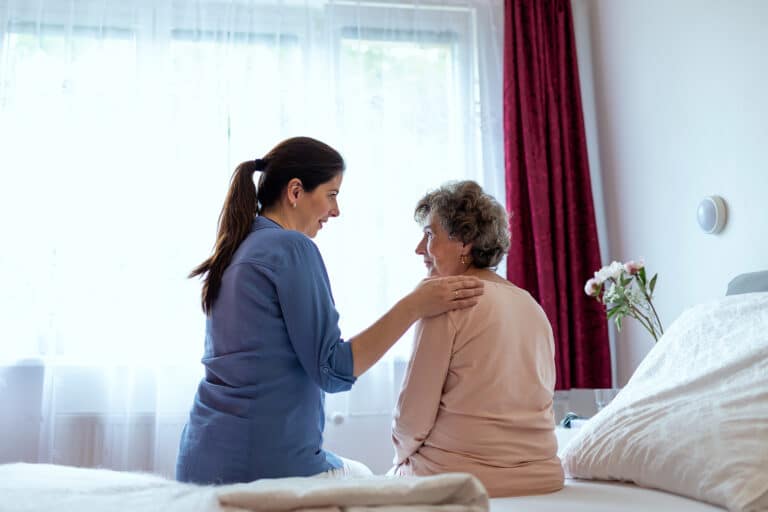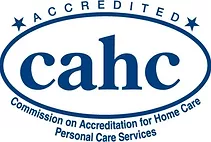Mental health issues are not limited to young adults. Mental illness affects all ages, and older adults are not immune. Here are six facts to know about mental illness and older adults, and how companion care at home can play a role in improving mental health for your parent.
An Estimated 15% of Older Adults Suffer From Mental Illness
Worldwide, an estimated 15% of older adults have at least one mental health condition. Anxiety and depression are common. In addition to this, there are neurologic disorders, like dementia, that impact brain health and often come with mental illnesses like depression, delusions, and paranoia.
Frequent Mental Distress Impacts About One Out of Ten Women
Between 7.7% and 13.2% of women over the age of 55 experience frequent mental distress (FMD). This is defined as experiencing extreme stress, anxiety, and other feelings of mental fatigue for 14 or more days. FMD may trigger poor dietary habits and a reliance on smoking or drinking to ease the strain.
Loss of Mobility Can Impact Mental Health
As mobility issues impact your mom, it can impact her mental health. Limited mobility can increase the risk of depression, especially if that loss of mobility isolates your mom and makes it harder for her to leave the house.
Anxiety Is More Common Than You Might Think
When stress builds and there’s no proper release of that stress, anxiety may kick in. If it leads to an anxiety attack, your mom may find her heart races, her chest hurts, and she finds it hard to breathe. She may believe she’s having a heart attack, which only worsens the anxiety. Upwards of 12% of older adults experience anxiety.
Chronic Health Conditions Can Increase Anxiety and Lead to Depression
Sometimes, depression follows being diagnosed with cancer, dementia, lung disease, heart disease, or any other chronic health conditions. It can also cause anxiety. If it’s happening to your mom, it may help to find her a support group for older women with similar problems. She’ll have the support of others who understand what she’s going through.
Depression Is Often a Treatable Condition
Depression is not something your mom must deal with. In 80% of the cases of depression in older adults, medications, therapies, and counseling can help ease the symptoms. It’s important that your mom is honest with her doctor and advocates for herself if her doctor doesn’t take it seriously.
Don’t leave your mom alone all week. If you don’t live nearby and she doesn’t get many visitors, companion care at home is important. Have caregivers stop by and visit her often. Even if all she needs is someone to share a meal with or to join her on walks, companion care at home ensures she has the company she needs.
Sources:
https://www.cdc.gov/aging/pdf/mental_health.pdf
https://www.who.int/en/news-room/fact-sheets/detail/mental-health-of-older-adults
If you or an aging loved one is considering companion care at home in Clark, NJ, please contact the caring staff at Adult Alternative Home Care today. (888) 664-1769
- Home Care Assistance Can Help Seniors Manage Self-Care Tasks - April 24, 2025
- The Superfood You Shouldn’t Miss - April 9, 2025
- First Home Care Visit? Here’s The Inside Scoop - April 9, 2025


